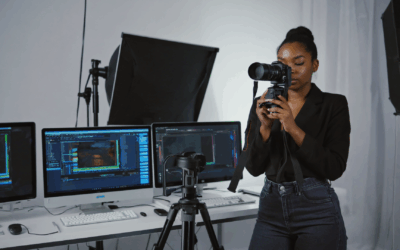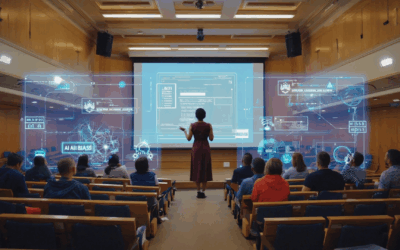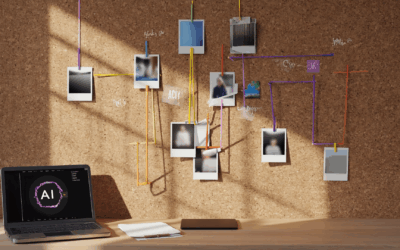Photography has always been a way to capture and preserve our most cherished memories. With the rapid advances in technology, the field of photography is undergoing significant transformations. One of the most exciting areas of development is the integration of artificial intelligence (AI) into photography products. This article will explore how AI photography products are revolutionizing the way we capture moments, and how companies like Wim Arys Photography are leading the charge in this exciting frontier.
Table of Contents
What is AI and its Applications in Photography
Artificial Intelligence (AI) is a rapidly evolving field of computer science that focuses on creating machines capable of reasoning, learning, and problem-solving. In photography, AI is used to enhance the image capturing process, automate post-processing tasks, and improve the overall image quality. AI-driven algorithms can analyze and learn from vast datasets, allowing them to recognize and predict patterns that humans cannot easily detect.
AI offers several practical applications related to photography, which include:
- Image recognition and tagging: Automatically identifying and categorizing objects within images.
- Face detection and recognition: Identifying and tracking faces in a frame, making adjustments to optimize portrait photography.
- Optimizing camera settings: AI can analyze a scene and adjust camera settings such as ISO, shutter speed, and aperture to capture the best possible image under any lighting condition.
- Image enhancement: Applying post-processing techniques to improve image quality, such as noise reduction, color correction, and sharpening.
AI Integrated Cameras
AI integrated cameras incorporate AI algorithms either in their hardware or firmware to provide advanced features and improvements over conventional cameras. These cameras utilize AI to enhance the user experience and generate better final images.
AI Camera Features
AI-powered cameras come with a wide range of features designed to enhance photography, such as:
- Scene detection: Automatically recognizing the subject and environment to optimize camera settings.
- Portrait mode: Using AI processing to separate the subject from the background, creating professional-looking portraits with blurred backgrounds.
- Smart HDR: Capturing multiple exposures and using AI to combine them into a single, optimally exposed image.
- Low-light performance: Improving image quality in low-light situations by using AI algorithms to reduce noise and enhance details.
- Automatic image retouching: Enhancing overall image quality by applying AI-based post-processing adjustments.
Top Brands and Models
Several notable camera manufacturers have embraced AI technology to improve their cameras’ performance. Some popular AI integrated camera models include:
- Sony A7 IV: A full-frame mirrorless camera featuring AI-powered autofocus, real-time tracking, and Eye AF.
- Canon EOS R5: A full-frame mirrorless camera with AI-driven face and eye detection autofocus, deep learning algorithms for animal tracking, and in-camera RAW image processing.
- Nikon Z9: A professional full-frame mirrorless camera, utilizing AI algorithms for autofocus tracking and subject acquisition, as well as automated, in-camera shadow and highlight adjustment.
- Fujifilm GFX100S: A medium format camera that uses AI algorithms to optimize autofocus performance, making it quicker and more accurate.
AI-powered Photography Software
AI-driven algorithms are increasingly being used in photography software, allowing photographers to enhance and optimize their images with ease. Some popular AI-powered software options include:
- Adobe Photoshop and Lightroom: These photo editing applications integrate AI technologies, such as Adobe Sensei, to provide advanced image processing, automation, and enhancement features.
- Topaz Labs: A suite of AI-powered photo editing plugins that includes DeNoise AI, Sharpen AI, and Gigapixel AI, designed to enhance image quality and detail.
- Luminar AI: A dedicated photo editor that leverages AI to streamline and automate the image editing process, offering AI-powered sky replacement, object removal, and facial retouching tools.
Challenges Faced by AI Photography
Despite the numerous potential benefits of AI-driven photography, there are some challenges and concerns that persist in this field:
- Privacy concerns: The use of AI technology for facial recognition and image tagging raises privacy concerns for many individuals.
- Artistic authenticity: Some critics argue that AI-driven photography risks compromising a photographer’s creative vision, pushing the artform towards conforming to predictable “ideal” images generated by algorithms.
- Over-processing: In some cases, AI algorithms can result in over-processed and unnatural-looking images, particularly when handled improperly or executed without care.
- Hardware and software compatibility: As AI technology continues to advance rapidly, there may be issues with backward compatibility and fragmentation between hardware and software, potentially limiting innovation and adoption.
The Future of AI Photography
The possibilities for the future of AI-driven photography are immense, with potential applications and advancements that include:
- Greater computational power and efficiency, enabling photographers to process and store high-resolution images quickly and easily.
- Further integration of AI technologies into the full spectrum of photography tools, from camera hardware to editing software, creating better synergy and streamlined workflows.
- Advancements in AI-based image recognition and synthesis, opening doors to new creative possibilities, such as automatically generated or enhanced digital environments and models.
- Increased accuracy and precision of AI-based algorithms, leading to improved image quality and reduction of unwanted artifacts and noise.
Conclusion
AI-powered photography products are rapidly transforming the way we capture and process images, offering new possibilities and capabilities for photographers of all abilities. Cameras with integrated AI algorithms and AI-driven photography software are becoming increasingly available, enabling artists to produce stunning, high-quality images with relative ease. While there are potential challenges and concerns, the future of AI photography looks bright and full of possibilities. Company’s like Wim Arys Photography plays a crucial role in informing and educating photographers about the latest advancements and innovations in this field.




0 Comments